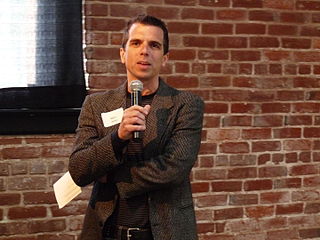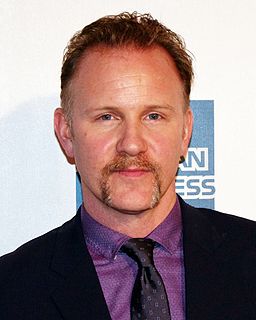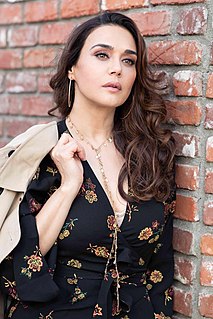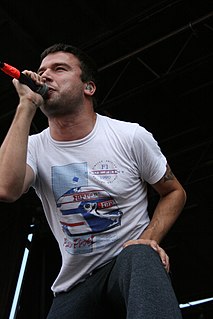A Quote by Dan Chaon
Fiction is a particular kind of rhetoric, a way of thinking that I think can be useful in your life. It asks you to image the world through someone else's eyes, and it allows you to try to empathize with situations that you haven't actually experienced.
Related Quotes
Memory is like fiction; or else it's fiction that's like memory. This really came home to me once I started writing fiction, that memory seemd a kind of fiction, or vice versa. Either way, no matter how hard you try to put everything neatly into shape, the context wanders this way and that, until finally the context isn't even there anymore... Warm with life, hopeless unstable.
And it took to "The Devil Wears Prada" to play someone tough, who had to make hard decisions, who was running an organization, and sometimes that takes making tough decisions for a certain kind of man to empathize. That's the word - empathize. Feel the story through her. And that's the first time anybody has ever said that they felt that way.
You're already using your imagination because you're watching fiction and then you're trying to believe that this girl who weighs 100 lbs, soaking wet, could actually beat up a guy. Which works in a lot of situations but in a lot of situations you look at it and you're like, "Come on. Could you please get someone in there who actually has biceps and not just because they don't eat?"
If the best way to learn to succeed is to fail as fast as possible, then the second-best way is to watch someone else fail as fast as possible. Watching someone else screw up is a kind of rehearsal for your own eventual downfall. A close observation of someone else's attempt to resolve a difficulty is a great way to acquire real-world insight into whether and when to deploy their method in your own times of trouble.
I think that we Americans, in particular, tend to think too directly about problems. If there's a problem we want to basically go in with a screwdriver or else drop bombs on it. A better way to solve problems is to think indirectly and try to change the environment. So I think you can gain much better self-control not so much by working on yourself as by looking at the situations you're in and the people you hang around, and changing your environment.
I'm not suggesting that I have all the answers or that I have experienced everything someone else has. I'm a firm believer that everyone's life/spiritual journey is unique and personal, and I'm in no place to tell you what you have or have not experienced. However, I CAN tell you what I have experienced and learned, and I hope it is of use to someone out there.
Editing rooms are kind of, by definition, a bubble of you and the editor and what you're thinking. It's a truth-telling thing to watch it through someone else's eyes, is to get another level of real with your material. Like, "Maybe that's not that funny. Maybe that's not as interesting. Maybe that's redundant to something else. Maybe we can cut down." I don't know. It's a brutal, honest process. You've got to be pretty - You can't be sentimental. You have to be. It's a cold process. You can't be nostalgic. You have to make those tough decisions.





































